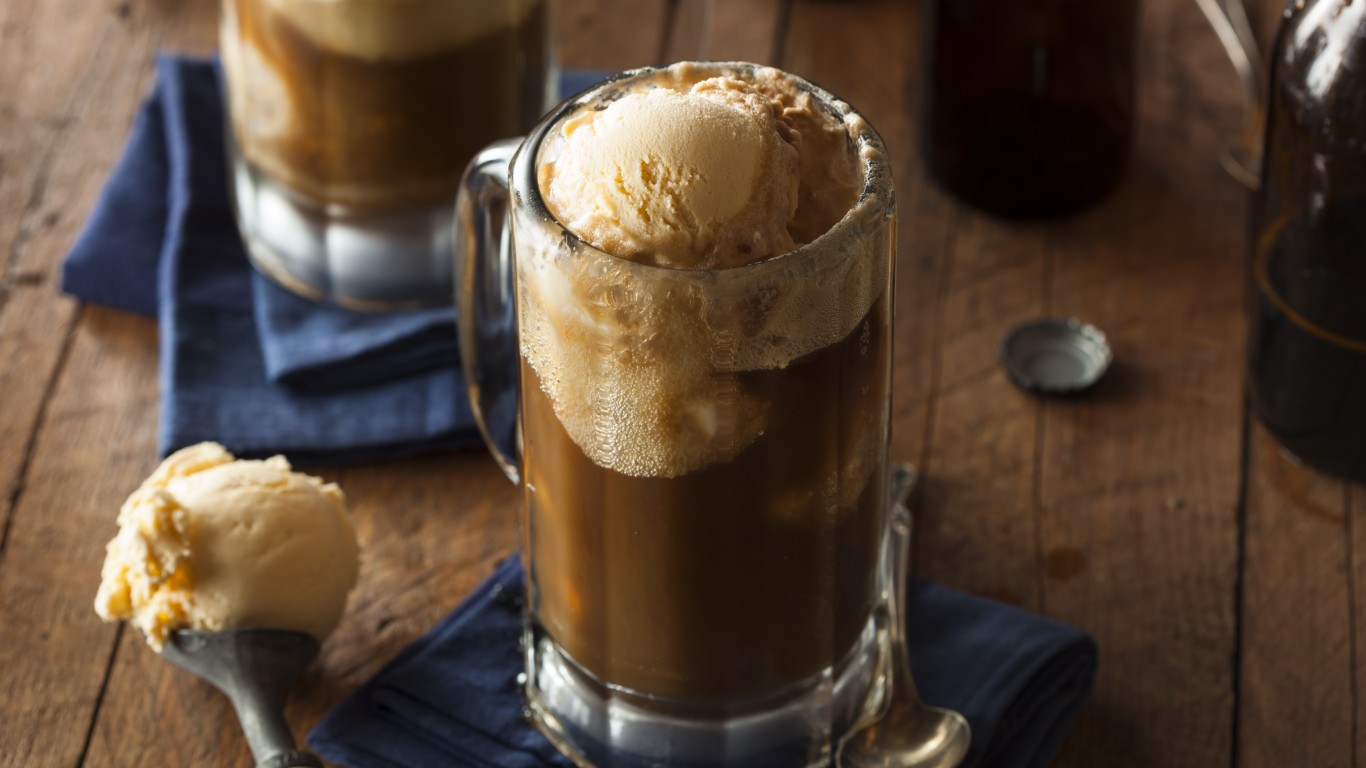
American culture and influence has spread globally since early in the last century, in part thanks to Hollywood. Be it Coca Cola, Nike, or rap music, people worldwide have adopted everything American — well, almost. For different reasons, some products simply can’t get a foothold outside the U.S.
Those reasons can include differences in culture and tastes. An obvious example is the American notion that bigger is better, leading to bigger cars, bigger portions, and warehouse stores — none of which have been fully embraced by most of the rest of the world.
Taste differences also contribute to non-Americans’ dislike of some very American foods. Even American staples such as the peanut butter and jelly sandwich or American cheese tend to raise an eyebrow elsewhere on the planet.
Then there are trade reasons, such as banned substances, tariffs, sanctions, or other more technical factors that prevent non-Americans from experiencing popular American products. Some of these products are currently made entirely or primarily in the United States, which can help explain why these products are popular in the states but hard to find elsewhere. These are some other surprising products still made in America.
These are popular products that are much harder to find abroad than in the United States.
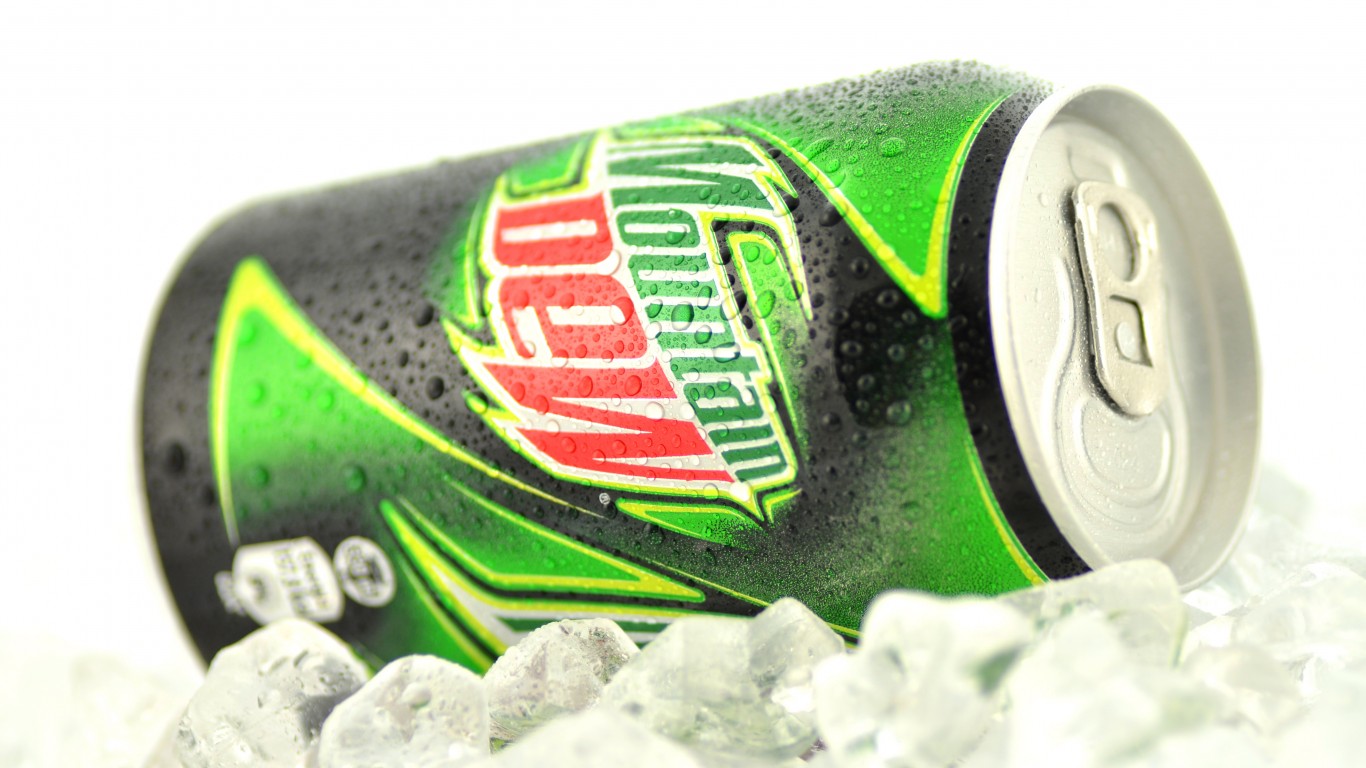
1. Mountain Dew
Fans of this caffeinated, citrus-flavored soda might wonder why it’s not popular outside America. Up until 2020, Mountain Dew contained brominated vegetable oil (BVO), a substance that is banned in the European Union and a few other countries due to possible health risks when consumed in large quantities.
Over a decade ago, more sodas contained this additive, which is used to bind the flavors and other ingredients so they don’t separate. Beverage companies, including PepsiCo (the maker of Mountain Dew), said they would phase out BVO use, with Mountain Dew one of the last remaining to use it. Now that the beverage is also free and clear of BVO, perhaps new markets worldwide will open to it.
[in-text-ad]
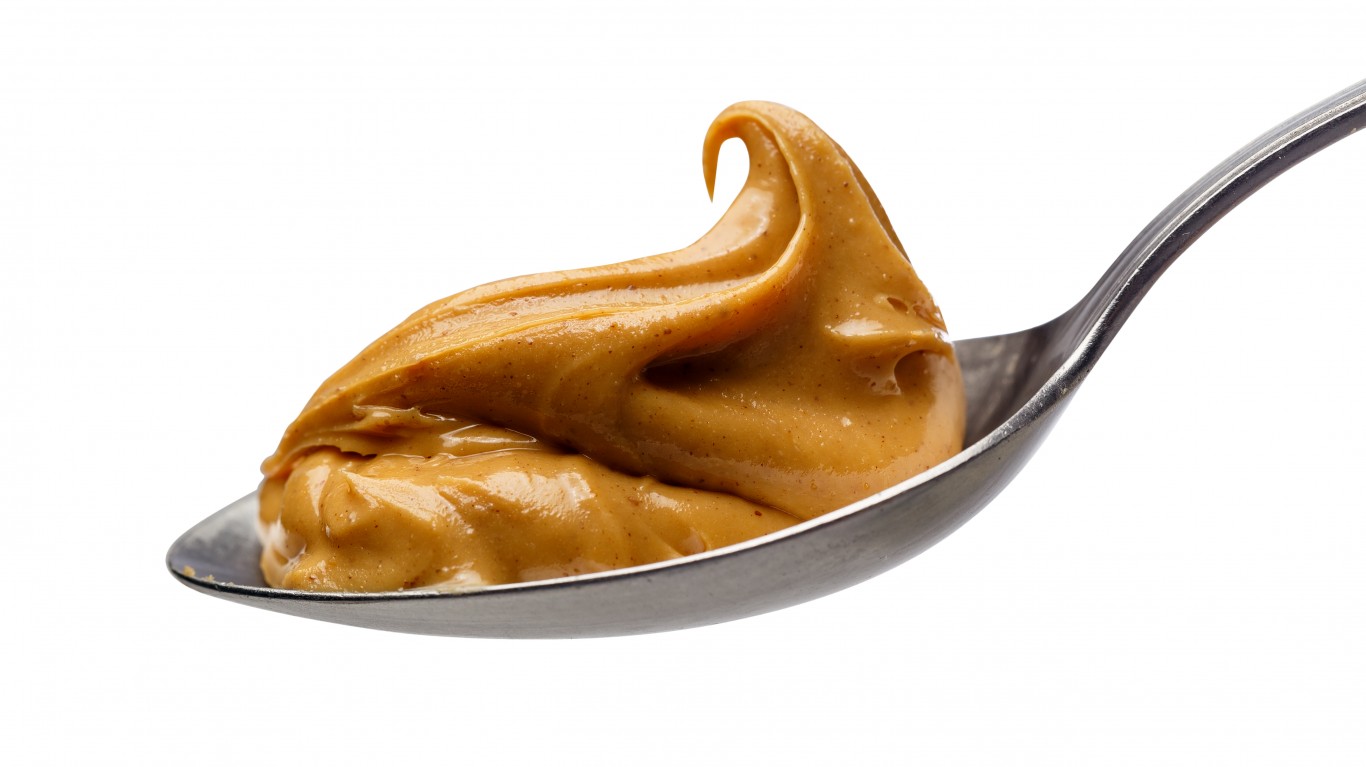
2. Peanut butter
This American staple used to be actively disliked outside America. Today, with the health food craze and all the other “butters” available — cashew, almond, or any nut — peanut butter is not as scoffed at as before, though it is still nowhere as beloved as in the U.S.
Peanut butter combo flavors remain a mostly American phenomena. The main one being, of course, peanut butter and jelly sandwiches.
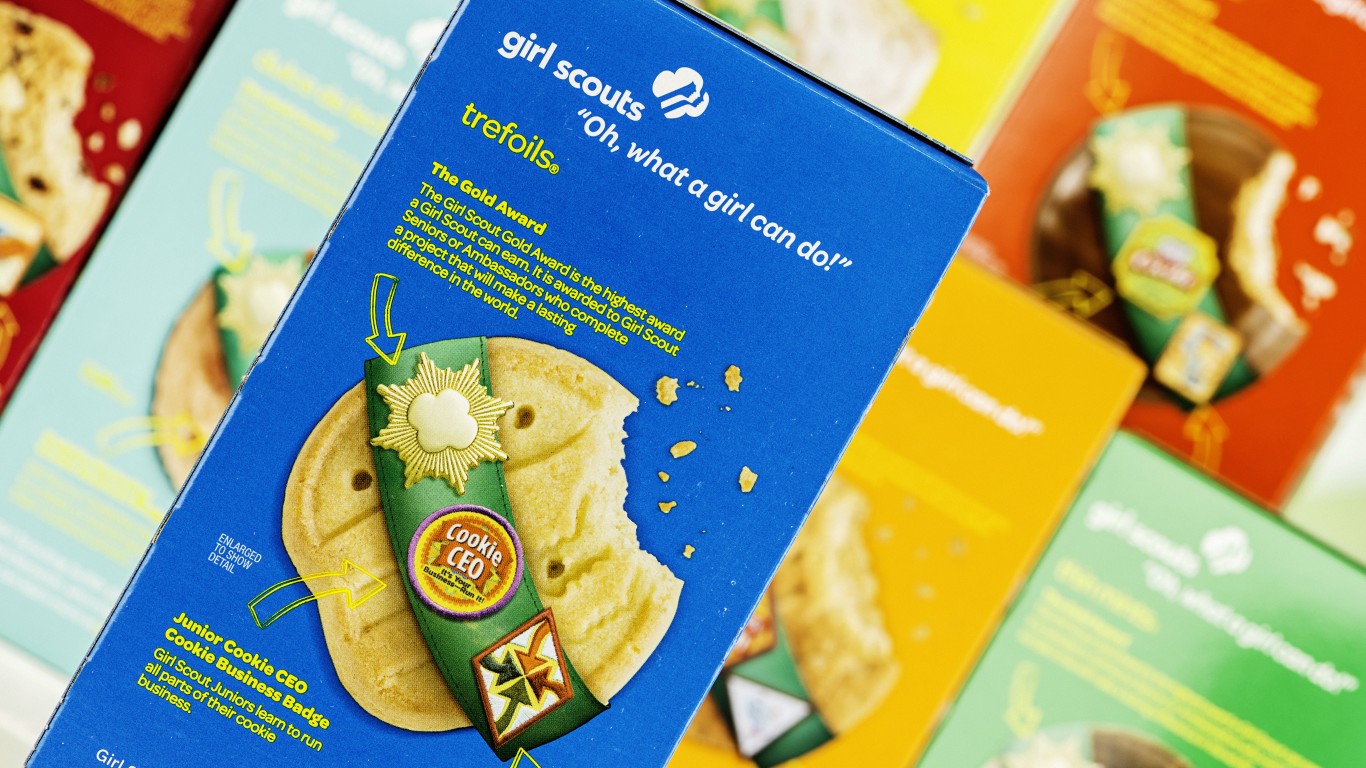
3. Girl Scout cookies
What started as a local fundraiser for one troop in Oklahoma over a century ago became over the years a nationally organized sale to raise funds for the Girl Scouts of the USA. Today, the GSUSA sells some $800 million worth of cookies, about 200 million boxes, a year.
While the GSUSA is part of an international organization, Girl Scout cookies are uniquely American and not easily available outside the U.S. So next time you visit a friend overseas and want to bring something that represents American culture, there’s nothing better than Girl Scouts cookies.
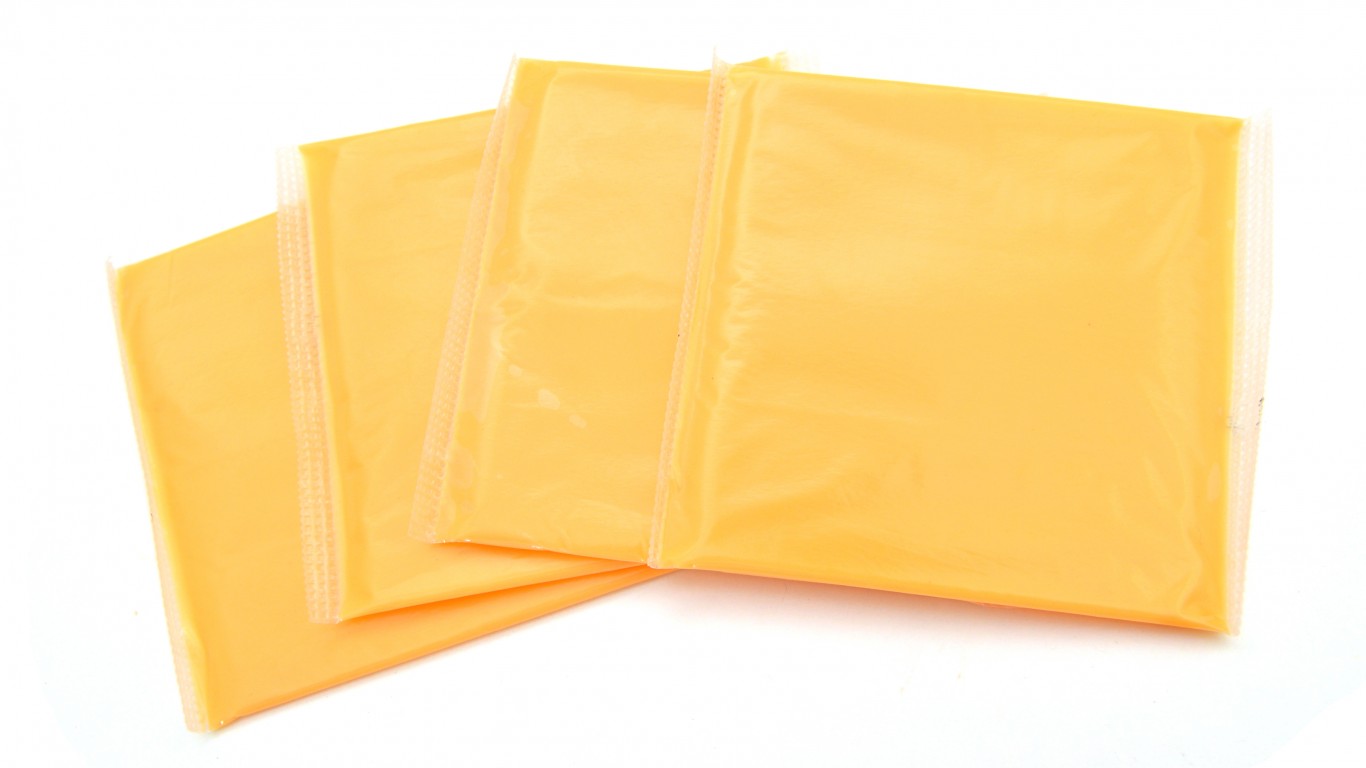
4. American cheese
It’s called American cheese for a reason. It simply can’t be found in most countries outside the U.S. and is often dismissed as a lower-quality processed product that many foodies would not even call cheese.
American cheese is made using a unique process that gives it a creamy, smooth quality. It can range in color from orange to white and be sold individually wrapped, sliced, or as a block. It may not be the best cheese, but many Americans wouldn’t dream of putting anything else on their burgers.
[in-text-ad-2]
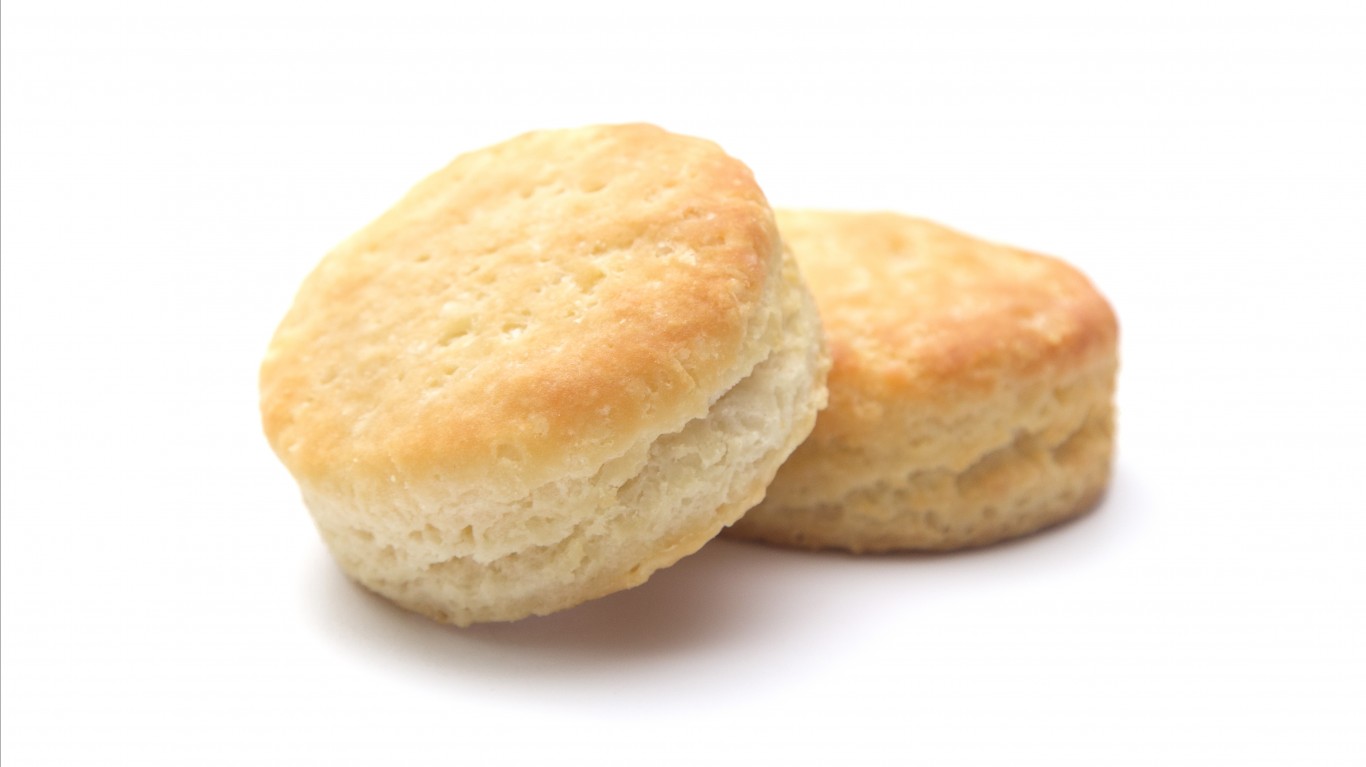
5. Southern-style biscuits
Southern-style biscuits are usually served with a meal, and not just in the South, but good luck getting them anywhere outside the U.S. You’ll just confuse most people abroad if you try to if you try to order biscuits and gravy for breakfast, particularly the English, for whom the word means cookie. A scone with butter and jam would be better understood.
The ingredients list is short — usually consisting of flour, butter/shortening, milk/buttermilk, baking powder, and salt.
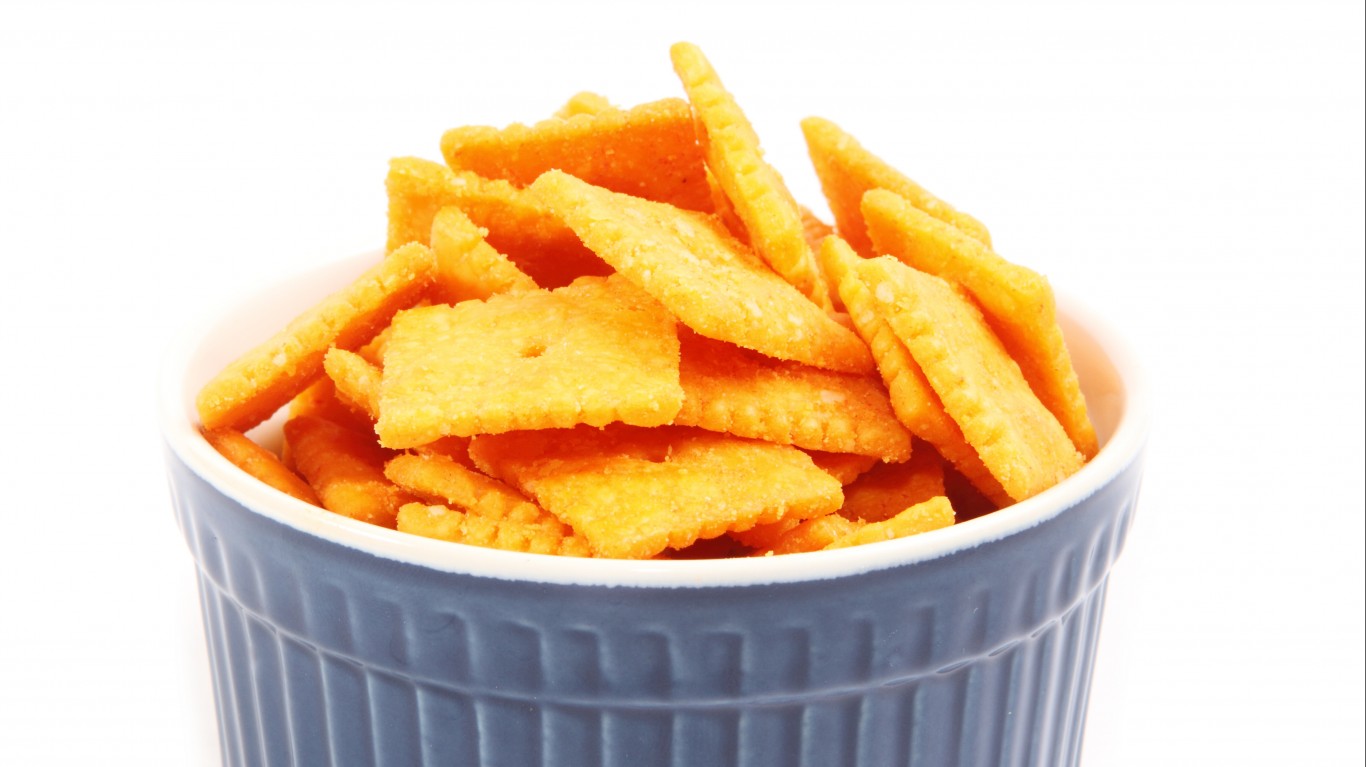
6. Cheez-Its
Crackers, like many snack foods, often showcase local tastes — and some crackers are uniquely American. So while you can find most crackers and snacks outside the U.S. — even if sometimes the flavor profiles are different (prawn cocktail Pringles in Europe and sweet basil Lay’s chips in Thailand) — finding Cheez-Its crackers is generally a no go. It’s no secret Americans love their cheese, and these crackers made by Kellogg are but one example.
[in-text-ad]
7. Frank’s Red Hot
Like snacks, hot sauces (and pastes) tend to mirror the local flavor — be it Indonesian sambal oelek, North African harissa, habanero sauces from south of the border, or the now ubiquitous in the U.S. (originally from Thailand) sriracha. None, though, is McCormick-owned Frank’s Red Hot, which is hard to find outside the U.S. or Canada.
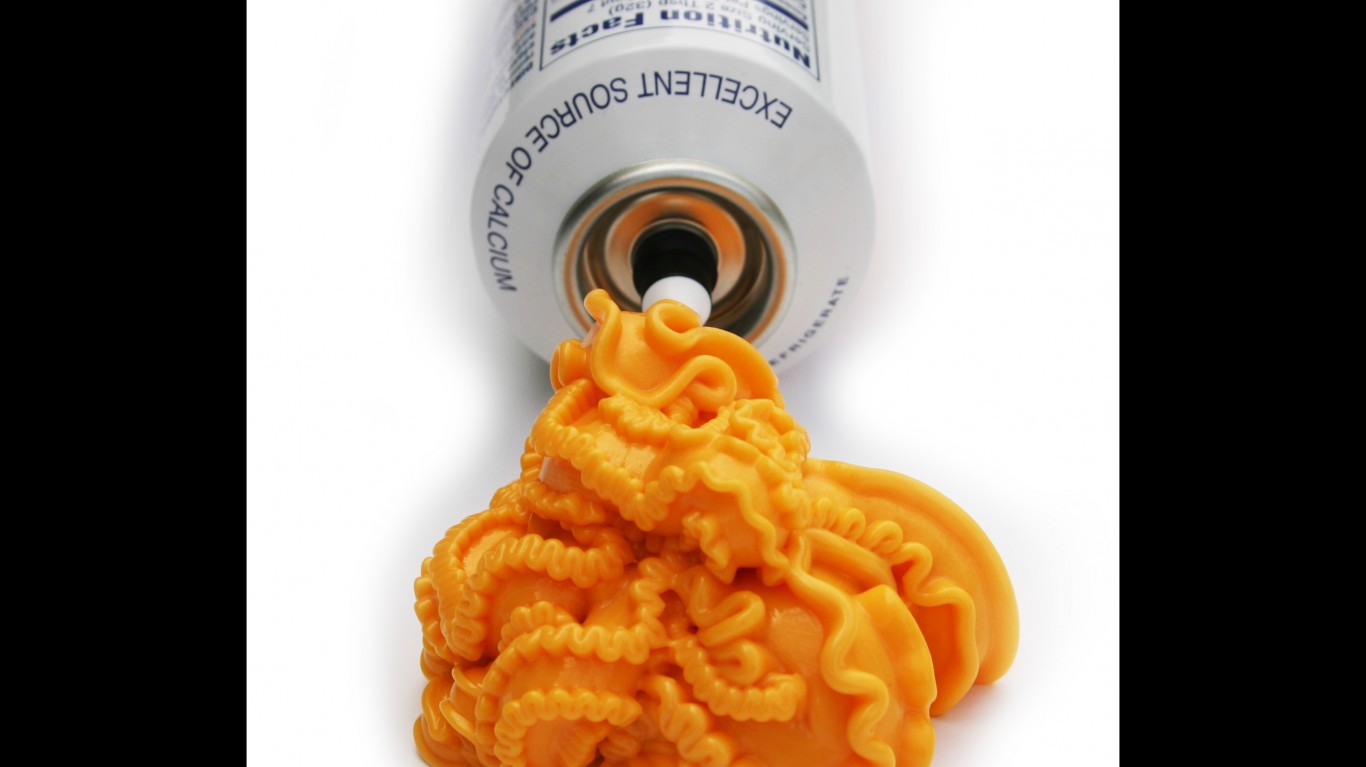
8. Easy Cheese
Perhaps no American food is as alien to non-Americans as liquid cheese, particularly aerosol cheese. While non-Americans might be able to wrap their heads around individually wrapped slices of American cheese, squeeze cheese is something else altogether.
Distributed by Mondelez International, Nabisco Easy Cheese is perhaps the ultimate American-only product. Similarly products include Kraft Cheez Whiz and Velveeta.
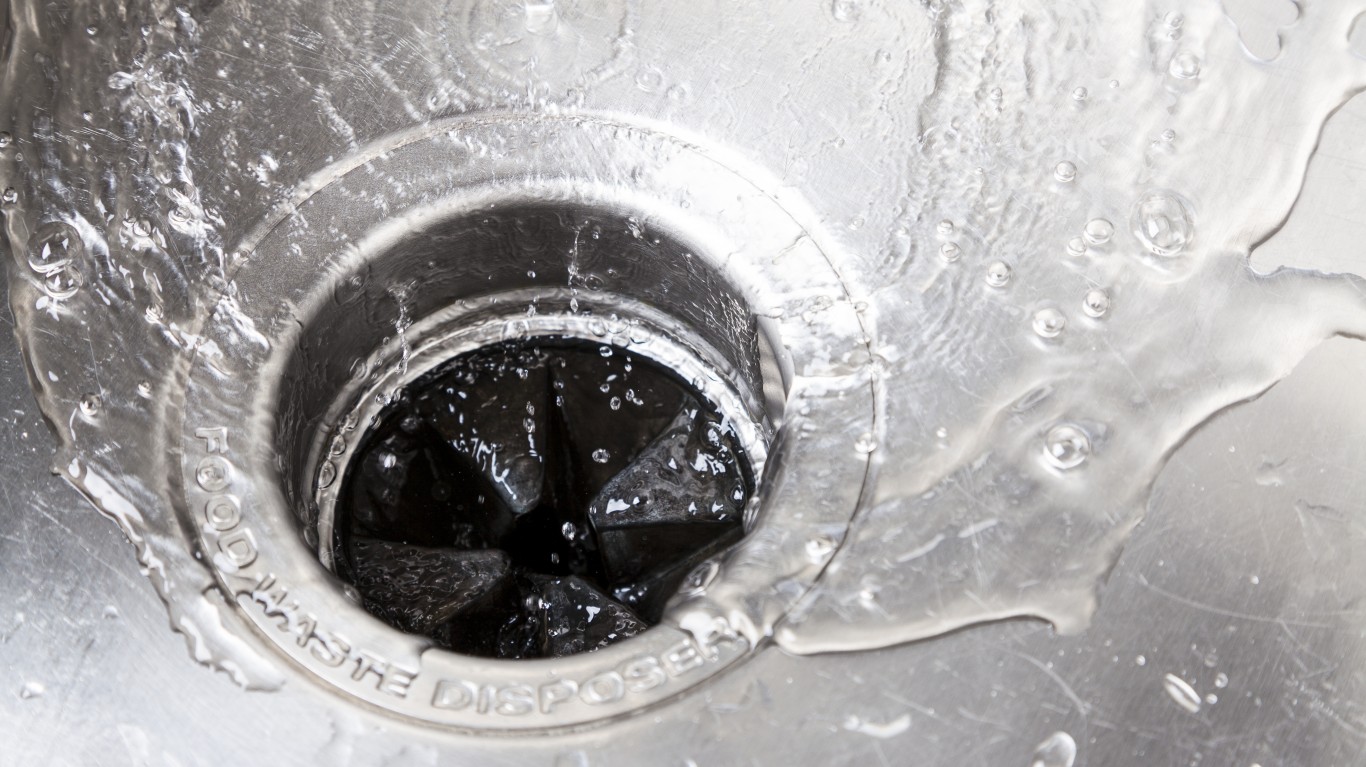
9. Garbage disposals
While the debate regarding their environmental impact has not reached a definite conclusion, one thing is certain — garbage disposals have not been adopted to a large extent outside the U.S.
Perhaps, yet again, Americans’ love of convenience is the reason for their wide adoption in America. Regardless, Europeans and other non-Americans are often baffled by the devices.
[in-text-ad-2]
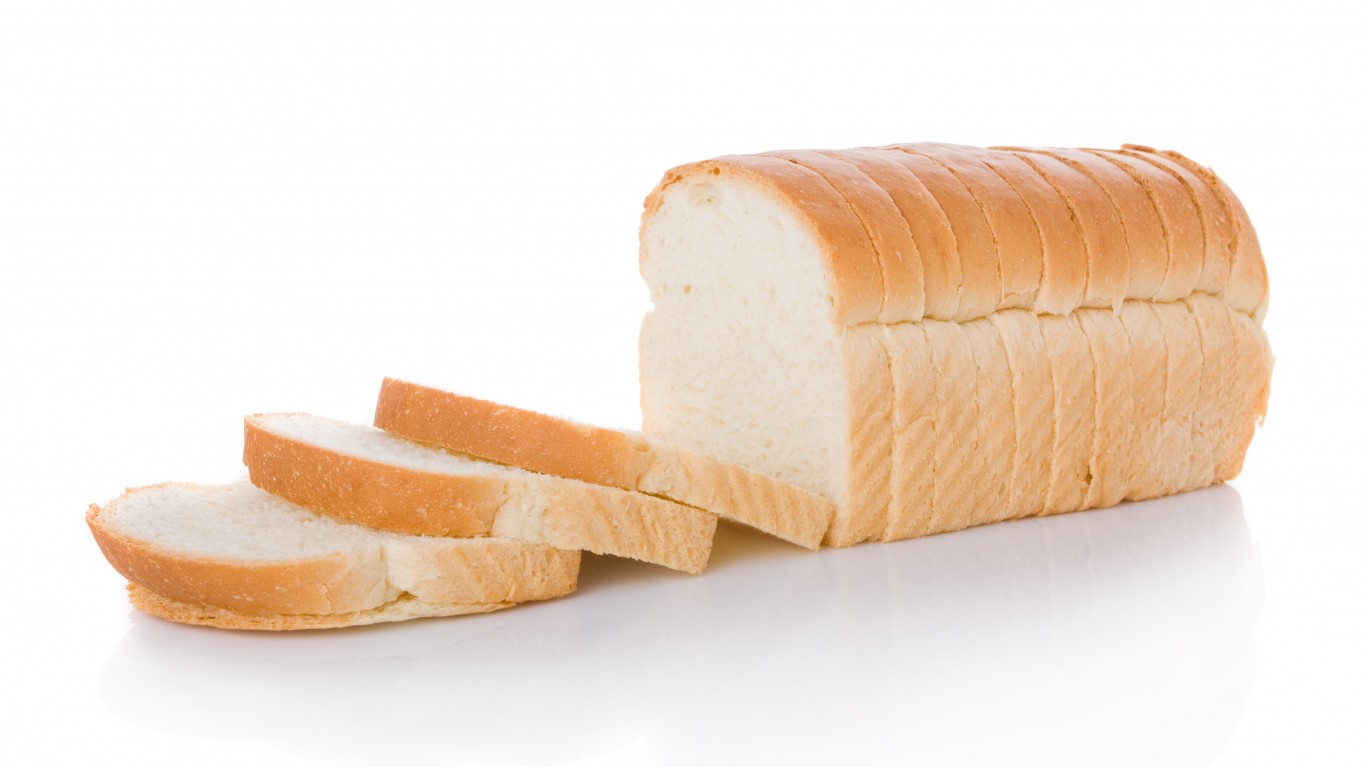
10. Wonder bread
You’d think something as mundane as bread wouldn’t be such a curious product, but that’s exactly what Wonder Bread — or other similarly soft white, sliced bread — is to non-Americans. It is too sweet and too soft to those who didn’t grow up on white bread sandwiches.

11. Airstream trailers
Traveling in a trailer is very American. The country’s vast landmass lends itself to road trips like nowhere else — there are no borders, the language is the same, and while the views might change, many of the basic comforts and commodities remain the same. And what’s more iconic than the aluminum Airstream trailer?
This type of RV (recreational vehicle) made by Thor Industries in Jackson Center, Ohio, was first manufactured a century ago. Though Airstream introduced several models for the European market — they tend to be smaller — it remains an iconic American product.
[in-text-ad]
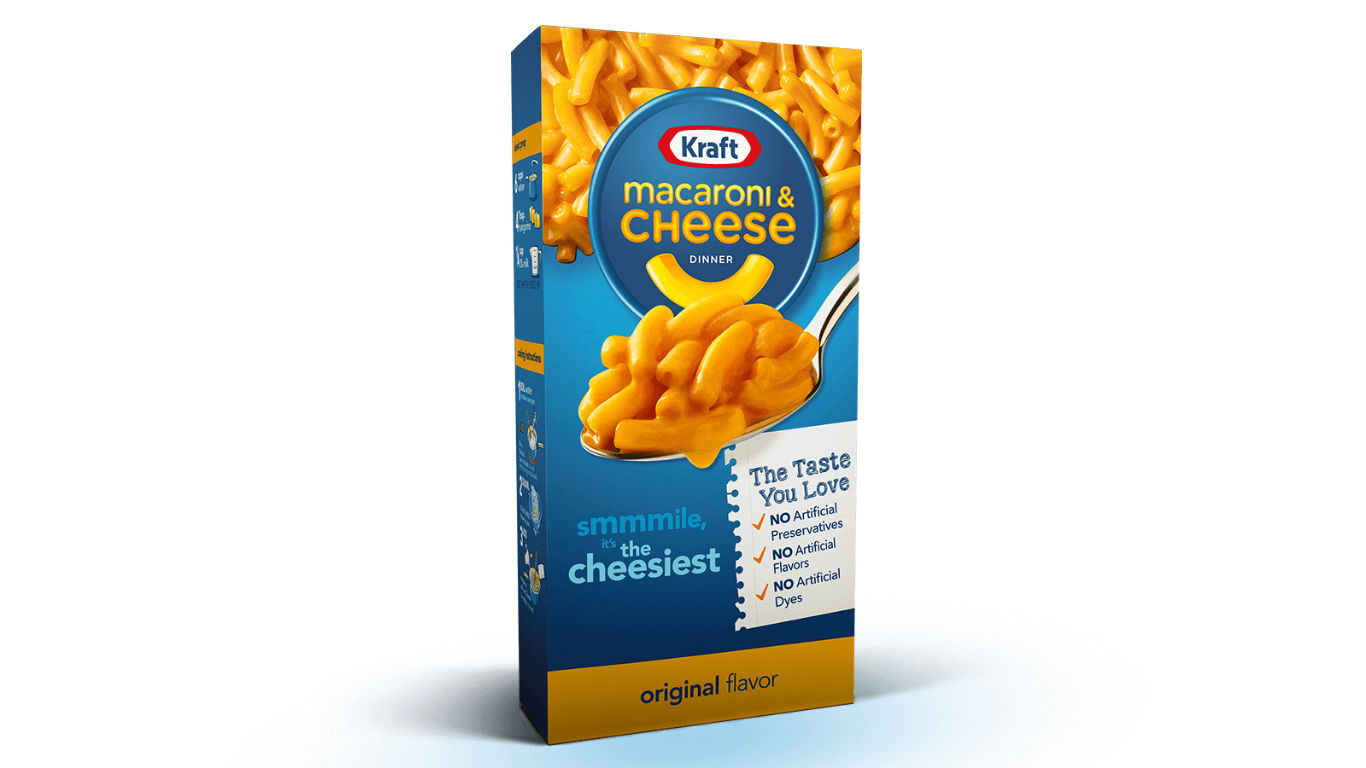
12. Kraft Mac & Cheese
If you’ve prepared your pantry for a coronavirus lockdown, no doubt you stocked up with several blue boxes of Kraft Mac & Cheese — regardless of your feelings about the product. It is, after all, a convenient nonperishable food.
It was introduced during similarly troubled times — the Great Depression — with the aim of combining nonperishable noodles with a processed cheese product (there’s that “cheese product” again). This North American (U.S. and Canada) staple has since expanded to other countries.
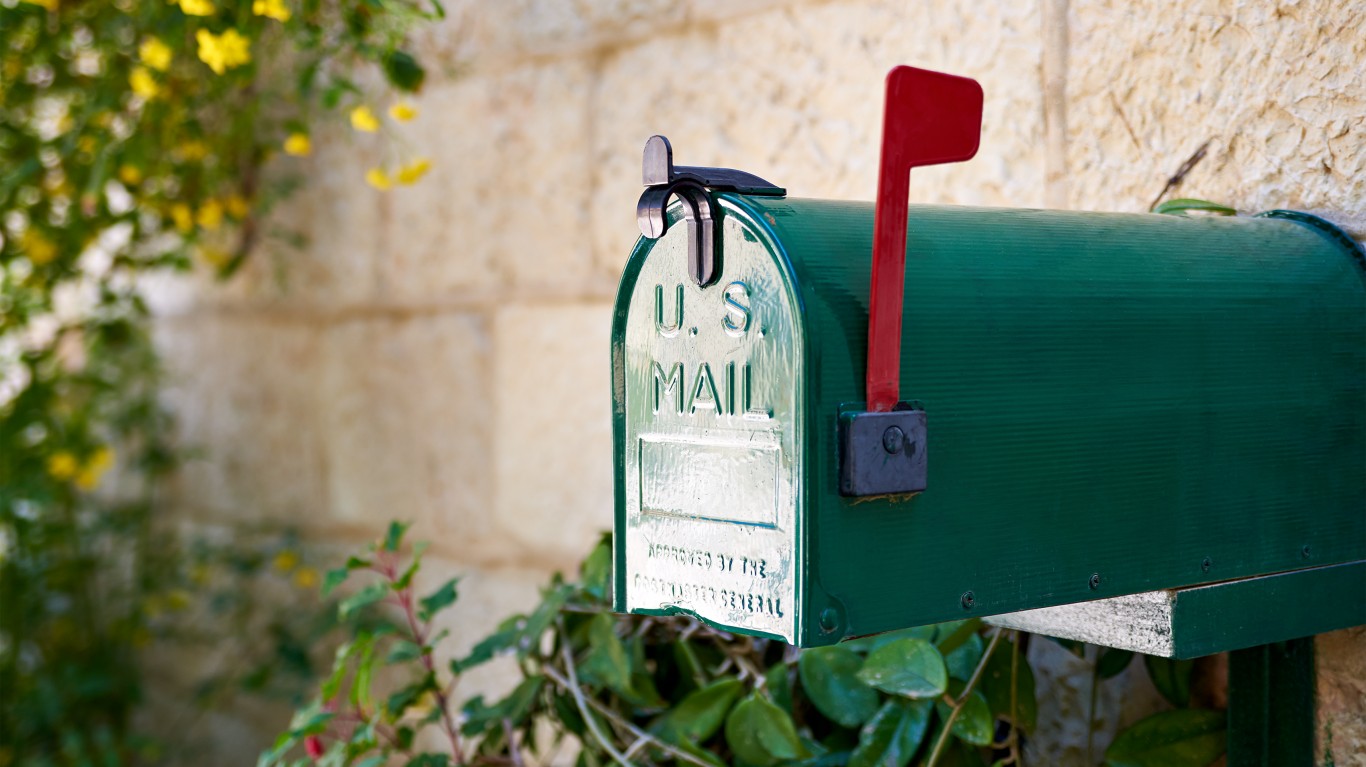
13. Mailboxes
Not something you’d think about, but if you travel in Europe you won’t see many of the curbside mailboxes you’re so used to seeing in front of American houses. For some reason, they never caught on there. It is more common abroad to have slots in the doors through which the mail is dropped, wall boxes, or centralized mail stations. Such stations are becoming more common in the U.S., too, as they are preferred by the USPS.
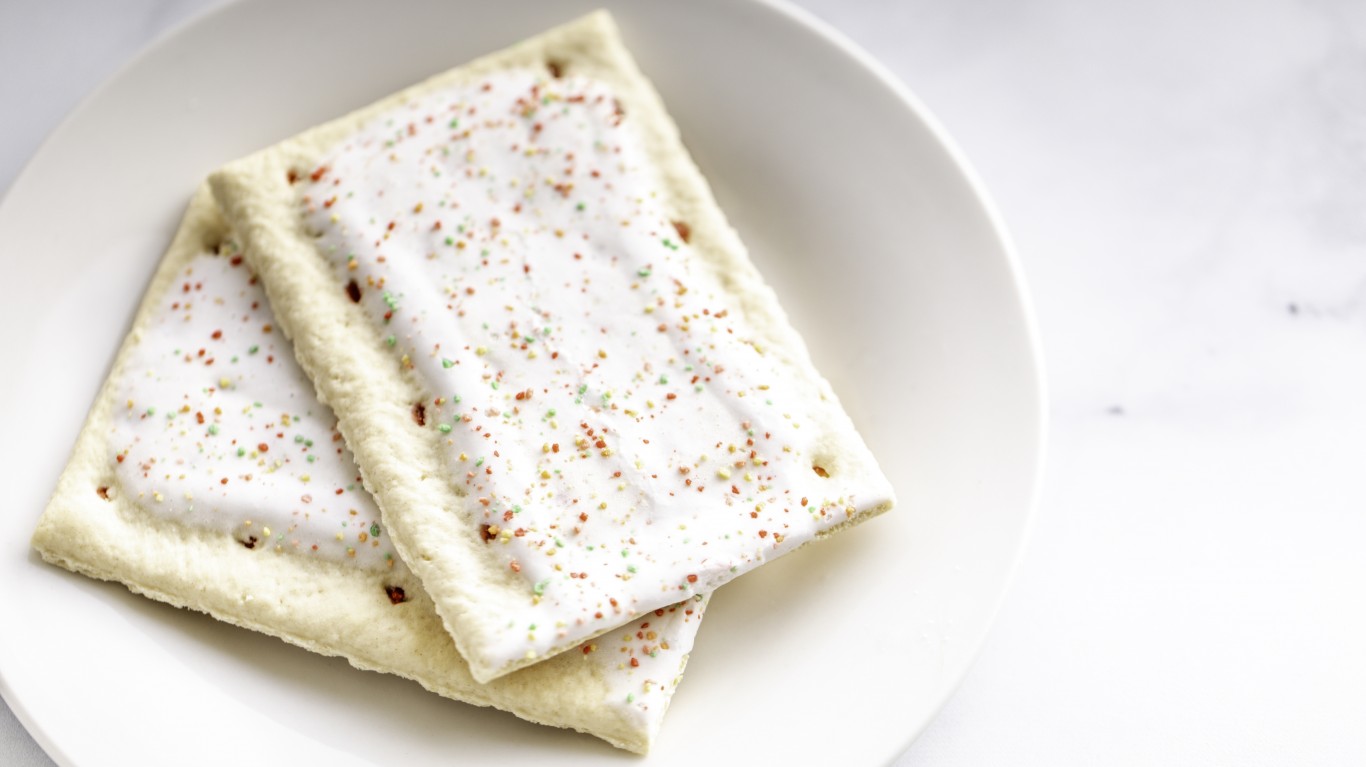
14. Pop-Tarts
Pop-Tarts are not seen much outside the U.S., though they are now available in a handful of other countries. These toaster pastries made by Kellogg are available in a variety of flavors nationwide, but if you must have them while travelling you’d better bring them along.
[in-text-ad-2]
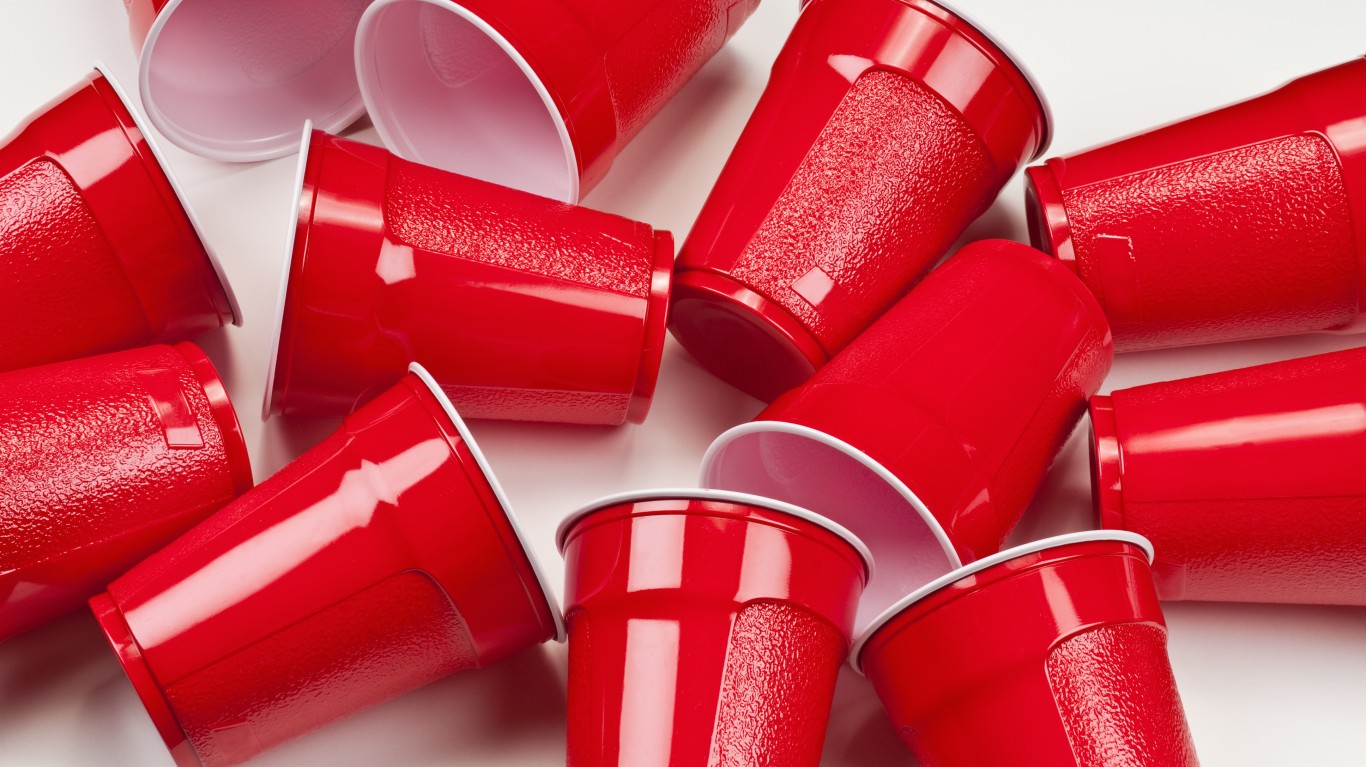
15. Red Solo cups
According to the Smithsonian, “If you’ve ever cleaned up after a kegger or done drink duty at an office party, you’ve seen them — the red Solo cups that are Americans’ receptacle of choice for beverages both alcoholic and non.” And non-Americans, too, consider the red Solo cup an American symbol.
Though Solo Company was acquired by Dart in 2012, it continues to manufacture the iconic red cups under the Solo brand.
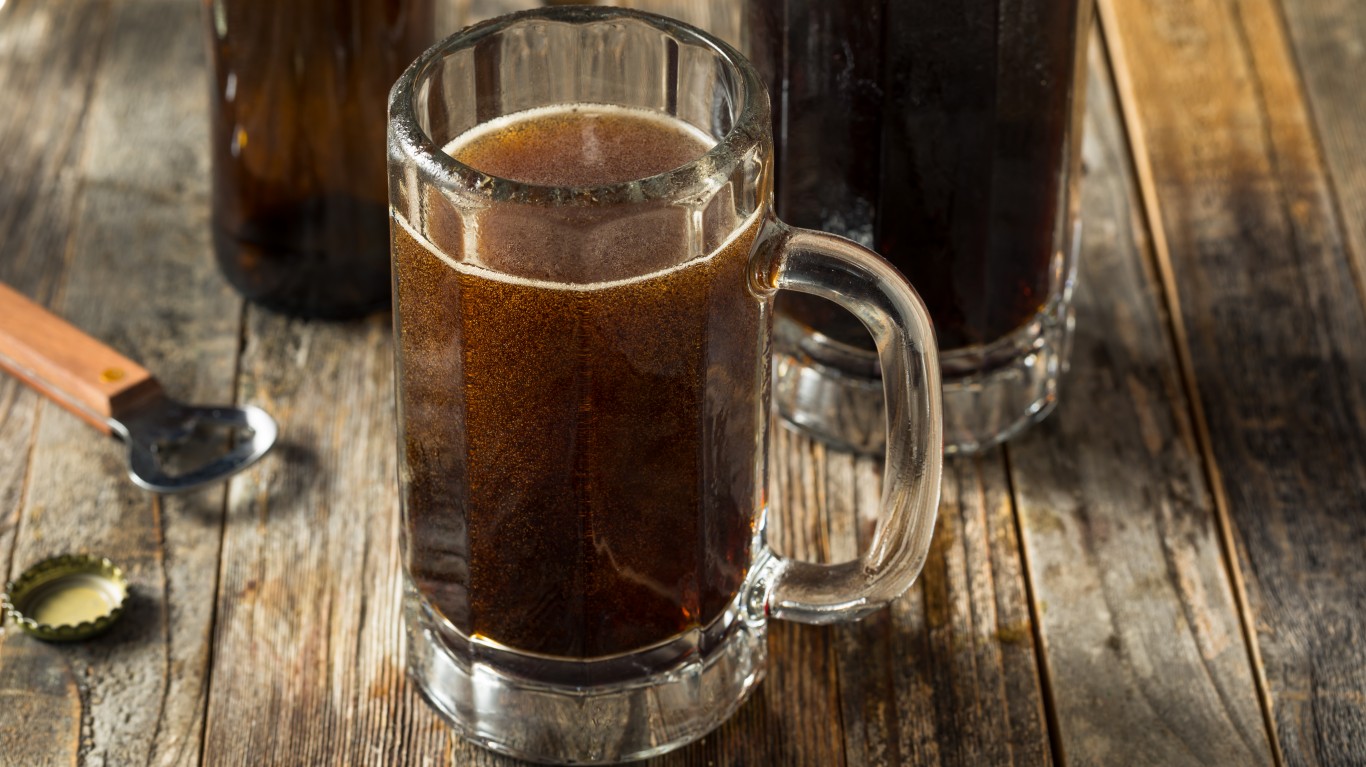
16. Root beer
Root beer is another one of those flavor profiles only Americans seem to like — just like PB&J, Easy Cheese, and others. Here, though, there might be another reason.
This sweet, non-alcoholic North American soda beverage was traditionally made using the root bark of the sassafras tree as the primary flavor. And that tree used to grow only in North America. Though today this flavor ingredient is no longer used and other ingredients are used to mimic the flavor, root beer has mostly failed to find fans outside the U.S.
[in-text-ad]
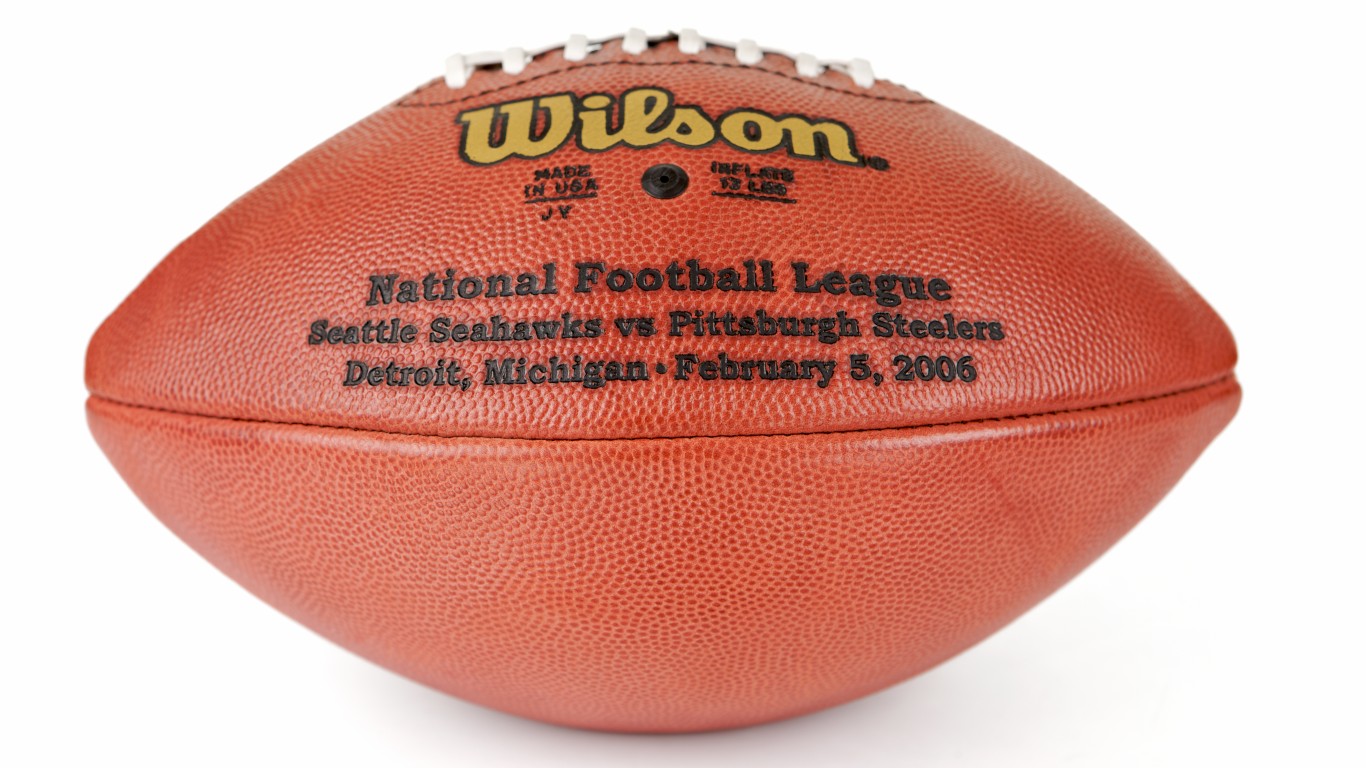
17. Wilson footballs
Football is an American sport. While baseball has its fans outside the U.S., and certainly basketball and hockey do, too, football has failed to catch on internationally. And if no one’s playing football elsewhere, why should they buy footballs, particularly the handmade Wilson footballs?
While rugby balls are quite similar in size and weight to footballs, they are not the same. Mainly, the ends differ — rugby balls have flatter ends, while footballs end in points.
The Average American Has No Idea How Much Money You Can Make Today (Sponsor)
The last few years made people forget how much banks and CD’s can pay. Meanwhile, interest rates have spiked and many can afford to pay you much more, but most are keeping yields low and hoping you won’t notice.
But there is good news. To win qualified customers, some accounts are paying almost 10x the national average! That’s an incredible way to keep your money safe and earn more at the same time. Our top pick for high yield savings accounts includes other benefits as well. You can earn up to 3.80% with a Checking & Savings Account today Sign up and get up to $300 with direct deposit. No account fees. FDIC Insured.
Click here to see how much more you could be earning on your savings today. It takes just a few minutes to open an account to make your money work for you.
Our top pick for high yield savings accounts includes other benefits as well. You can earn up to 4.00% with a Checking & Savings Account from Sofi. Sign up and get up to $300 with direct deposit. No account fees. FDIC Insured.
Thank you for reading! Have some feedback for us?
Contact the 24/7 Wall St. editorial team.
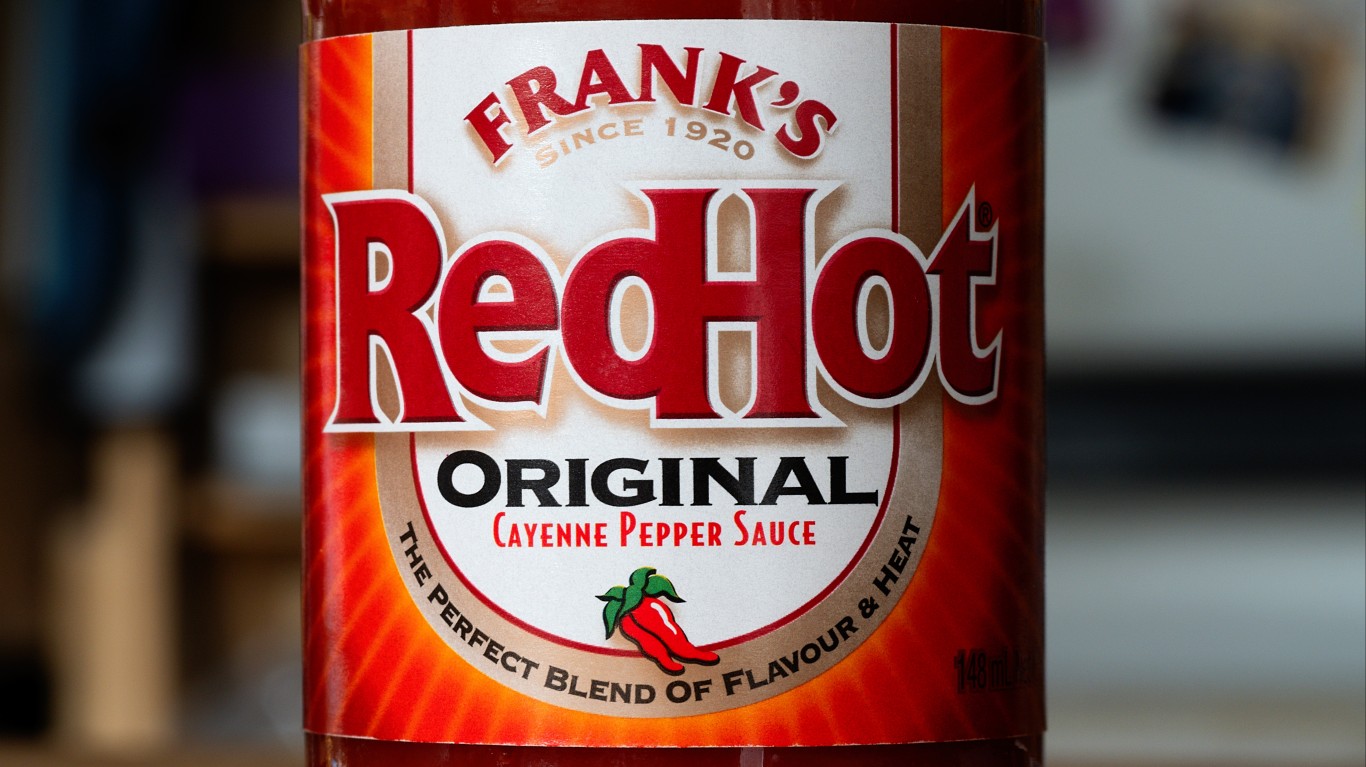
 24/7 Wall St.
24/7 Wall St.